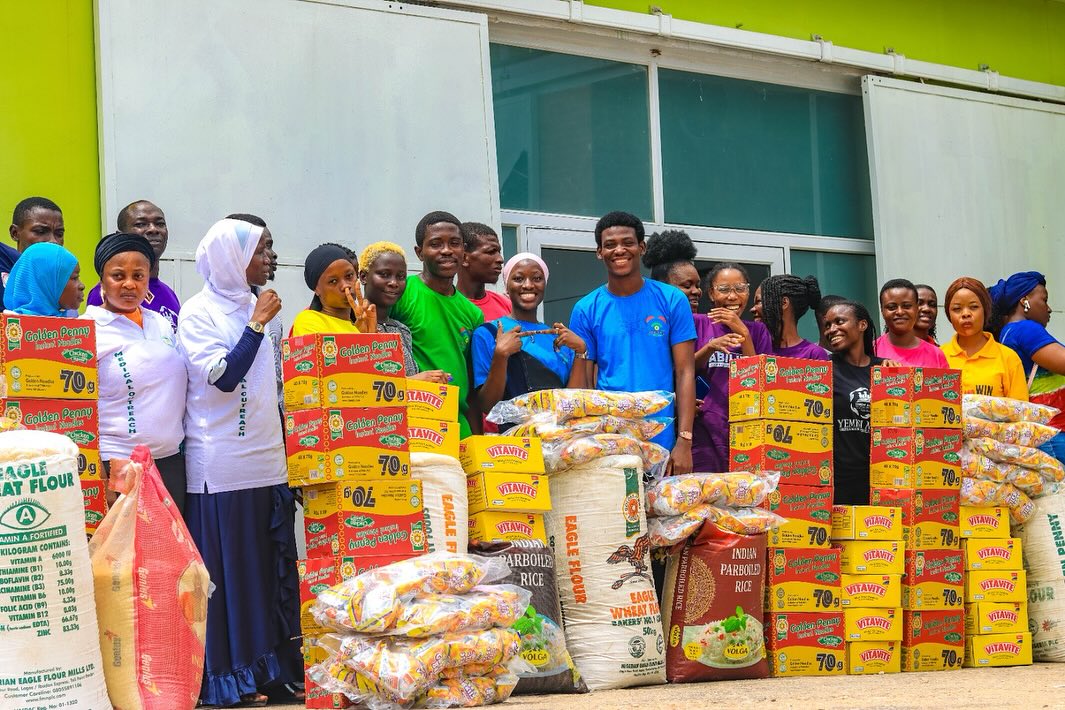The Lagos Food Bank Initiative (LFBI) exemplifies a successful model in addressing hunger through sustainable solutions in Nigeria. As the leading hunger-relief non-profit in the country, LFBI focuses on combating food insecurity and malnutrition while promoting healthy eating habits.
Below are sustainable solutions that the Lagos Food Bank Initiative employs to combat hunger in collaboration with other organizations:
Collaborative Programs
The Food Bank Network Nigeria Program (FBNN) is a brilliant innovation by the Lagos Food Bank Initiative that supplies food to a coalition of local food bank partners and credible non-profit organizations across Nigeria. The FBNN program was designed to reach more communities and beneficiaries that are outside Lagos and far-to-reach communities within Lagos environs. Since the launch of this program in 2020, it has provided food grants and relief packages to over 150 local food banks/pantries and credible non-profit organizations who have in turn reached 200,000 beneficiaries in Lagos state and other parts of Nigeria.
Sustainable Programs
LFBI operates various programs that align with the United Nations’ Sustainable Development Goals (SDGs). One notable initiative that aligns with SDG 2 and 4 (Zero Hunger and Quality Education) is the EDUFOOD program, which provides nutritious meals and educational materials to children in low-cost private schools, enhancing their focus and academic performance. Another initiative is the Family Farming program. Through this program, beneficiaries are empowered with resources for urban farming, allowing them to grow their own food and improve household nutrition while generating income from surplus produce, this also aligns with SDG 2 and 8 (Decent Work and Economic Growth).
Addressing Malnutrition
LFBI’s Nutritious Meal Plan Intervention for Vulnerable Mothers and Children (NUMEPLAN) targets malnourished mothers and children, providing essential counseling and food support to improve health outcomes. This program is crucial in a country where malnutrition affects millions, particularly among the vulnerable population. By collaborating with local healthcare centers, LFBI ensures comprehensive support for those in need.
Reducing Food Loss
The organization also addresses food loss through its Agricultural Recovery Program, which rescues surplus harvests from local farmers for redistribution. This not only mitigates environmental impact but also ensures that nutritious food reaches communities facing food scarcity. Such partnerships with farmers enhance local economies while promoting sustainable agricultural practices.
Community Engagement and Partnerships
LFBI’s success is rooted in its extensive network of partnerships with NGOs and corporate organizations. These collaborations enable LFBI to mobilize resources effectively, especially during crises like the COVID-19 pandemic, where they effectively scaled operations to provide food relief to vulnerable families. The trust built over the years has been pivotal in fostering community engagement and volunteerism.
Conclusion
Through its innovative programs and collaborative efforts, the Lagos Food Bank Initiative demonstrates a sustainable approach to combating hunger and malnutrition. By focusing on nutrition education, community empowerment, and reducing food waste, LFBI not only addresses immediate needs but also contributes to long-term food security in Nigeria. This model serves as a blueprint for similar initiatives globally, emphasizing the importance of partnerships in achieving sustainable solutions to hunger.
Written by Bamigboye Joy Esther, Volunteer at Lagos Food Bank Initiative.


